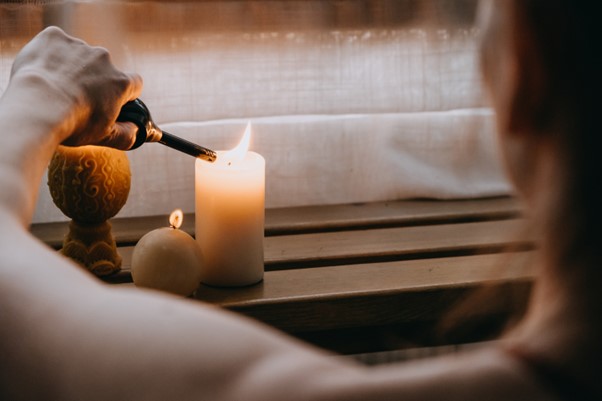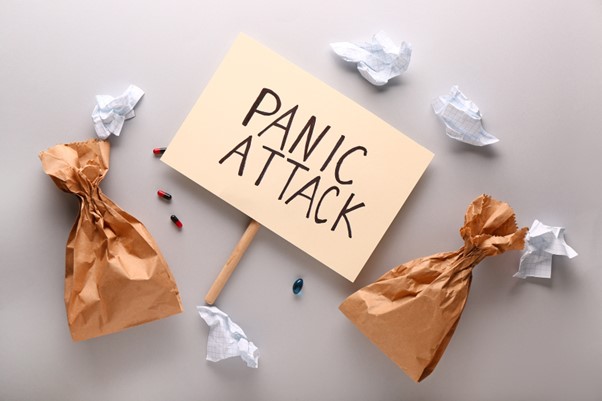Meditation and Anxiety Management: Finding Calm in the Chaos

Meditation and Anxiety Management: Finding Calm in the Chaos
Introduction
Anxiety is a common mental health issue that affects millions of people worldwide. It can be debilitating, making it difficult to enjoy life and manage daily activities. One powerful tool for managing anxiety is meditation. This ancient practice has gained significant attention in modern psychology and health circles for its potential to reduce stress and promote overall well-being.
Understanding Anxiety
Anxiety is characterized by excessive worry, nervousness, and fear. It can manifest physically through symptoms like increased heart rate, sweating, and trembling. Chronic anxiety can lead to severe health problems, making it crucial to find effective management strategies.
How Meditation Helps
Reduces Stress
Meditation encourages a state of relaxation and helps reduce the production of stress hormones like cortisol. By focusing on breathing and mindfulness, individuals can lower their stress levels significantly [1].
Enhances Emotional Health
Regular meditation practice has been linked to improved emotional health. It can increase self-awareness and promote a more positive outlook on life. Studies have shown that meditation can reduce symptoms of depression and anxiety [2].
Improves Focus and Concentration
Meditation trains the mind to focus and concentrate, which can be particularly beneficial for those with anxiety. It helps individuals stay present and avoid getting lost in negative thought patterns [5].
Types of Meditation for Anxiety
Mindfulness Meditation
Mindfulness meditation involves paying attention to the present moment without judgment. This practice can help individuals detach from anxious thoughts and reduce their power over time [3].
Guided Meditation
Guided meditation involves listening to a guide or instructor who leads you through the process of meditation. This can be especially helpful for beginners who are new to the practice.
Loving-Kindness Meditation
This type of meditation focuses on developing feelings of compassion and love towards oneself and others. It can help reduce negative emotions and foster a sense of connection and well-being.
Practical Tips for Meditating
Start Small
Begin with just a few minutes each day and gradually increase the duration as you become more comfortable with the practice.
Begin with Just a Few Minutes Each Day
Starting your meditation practice with just a few minutes each day helps you build a sustainable habit. Aim for 2-5 minutes at first and gradually increase the duration as you become more comfortable and experienced. Incremental increases can help prevent feelings of overwhelm and make the practice more enjoyable [8].
Find a Quiet Space
Choose a quiet, comfortable place where you won’t be disturbed. This setting helps in maintaining focus and relaxation, crucial for a successful meditation session. A calm environment reduces distractions and creates a peaceful atmosphere conducive to mindfulness [9].
Use Guided Meditations
For beginners, guided meditations can be beneficial. Apps like Headspace and Calm offer numerous guided sessions tailored to reducing anxiety and improving mindfulness. These guided practices provide structure and direction, making it easier to follow along and stay focused [11].
Practice Regularly
Consistency is key to developing a meditation practice. Try to meditate at the same time every day to build a routine. Whether it’s first thing in the morning, during a lunch break, or before bed, having a set time helps integrate meditation into your daily life [10].
Be Patient
Meditation is a skill that takes time to develop. Be patient with yourself and recognize that progress may be gradual. It’s normal to experience challenges, especially in the beginning. Stay committed and remind yourself that the benefits of meditation often come with consistent practice over time [7].
Conclusion
Meditation is a valuable tool in managing anxiety. It helps reduce stress, improve emotional health, and enhance focus and concentration. By incorporating meditation into your daily routine, you can find a greater sense of calm and resilience in the face of anxiety. Start small, be consistent, and use resources like guided meditations to support your practice.
🌐 Sources
- Mayo Clinic – Meditation: A simple, fast way to reduce stress
- LinkedIn – Finding Calm in the Chaos: A Holistic Approach to Stress
- Mindful.org – Meditation for Anxiety
- Amazon – Finding Calm in The Chaos: Practical Strategies for Managing Anxiety
- Calm – How to meditate for anxiety: 12 tips & techniques
- siyli.org – Build a Meditation Practice by Starting Small
- leftbrainbuddha.com – How to Start a Meditation Practice: A Guide for Beginners
- zenhabits.net – Meditation for Beginners: 20 Practical Tips
- sharp.uconn.edu – Practical Tips: Fellow students share advice on meditation
- onepeloton.com.au – 8 Meditation Tips to Level up Your Practice
- healthline.com – 7 Tips for Building a Daily Meditation Practice








Responses